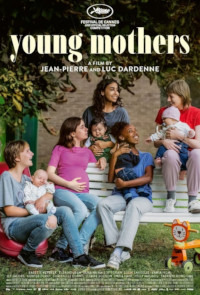| SHADOWS ON THE WALL | REVIEWS | NEWS | FESTIVAL | AWARDS | Q&A | ABOUT | TALKBACK | |||||||||||||
 Shadows off the beaten path Shadows off the beaten pathIndies, foreign, docs and shorts...
On this page:
BABY |
THE OTHER WAY AROUND |
YOUNG MOTHERS
| |||||||||||||
| See also: SHADOWS FILM FESTIVAL | Last update 10.Jul.25 | |||||||||||||
|
Baby Review by Rich Cline | 
| |||||||||||||
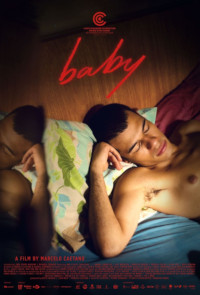 dir Marcelo Caetano scr Gabriel Domingues, Marcelo Caetano prd Beto Tibirica, Ivan Melo, Marcelo Caetano, Juliette Lepoutre, Pierre Menahem with Joao Pedro Mariano, Ricardo Teodoro, Ana Flavia Cavalcanti, Bruna Linzmeyer, Luiz Bertazzo, Marcelo Varzea, Kyra Reis, Patrick Coelho, Baco Pereira, Mauricio de Barros, Sylvia Prado, Victor Hugo Martins release UK Oct.24 lff, Br 9.Jan.25, US 11.Jul.25 24/Brazil 1h47 CANNES FILM FEST  Is it streaming? |
 Sharply observed to get under the skin of its youthful central character, this finely shot Brazilian drama takes a clear-eyed view of a seedy side of society. Most impressive is how filmmaker Marcelo Caetano finds the joy in a situation that's usually played in much darker ways on-screen. So even as the narrative takes some disturbing and overly pointed turns, it remains refreshingly hopeful about its characters. Released from juvenile detention, 18-year-old Wellington (Mariano) has no home to return to, so ends up on the streets of Sao Paulo. He finds his group of gender-queer friends in a park, and they sneak into a gay porn cinema to fleece patrons. There, Wellington meets Ronaldo (Teodoro), a 42-year-old escort who offers him a place to stay while coaching him in the fine art of sex work. As they bond, Ronaldo tells Wellington to stop being such a baby about sex. So Wellington adopts the name Baby. And he also continues to seek security. Abandoned by his parents, Wellington relishes this connection with Ronaldo, who tenderly cares for him. Ronaldo begins to take their relationship seriously, including flashes of jealousy that Wellington bristles against. Spending time with the middle-aged Alexandre (Varzea) is much easier, at least until he learns about Wellington's past. These things are beautifully written and played, although they're briefly undermined by a churning thriller subplot that arrives with a jolt when Ronaldo gets Wellington involved in drug dealing, even as he warns him against using them. There's a wonderfully easy physicality between Mariano and Teodoro that gives the relationship between Wellington and Ronaldo a playful kick, revealing softer sides of both men. Each scene is played in an earthy way, even when shadows of possessiveness, drugs and violence threaten to engulf the story. Through all of this, Mariano maintains a vivid yearning for happiness that's deeply resonant and warmly engaging. And smaller side characters feel equally authentic. Ronaldo reminds Wellington that he has to keep moving or the world will swallow him. And Alexandre notes how much easier gay life is for young people today who don't have to hide themselves. Running through this is a gently uplifting depiction of the importance of a found family, especially when your biological family fails you. Caetano's complex approach to this theme is much more involving than the grim cops-and-criminals sideroad. And even then, this is a sharp reminder that our scars make but don't define us.
| ||||||||||||
|
The Other Way Around Volveréis Review by Rich Cline | 
| |||||||||||||
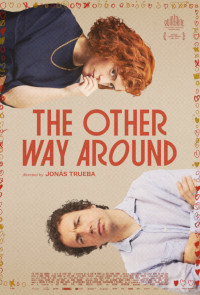 dir Jonas Trueba prd Javier Lafuente, Jonas Trueba scr Jonas Trueba, Itsaso Arana, Vito Sanz with Itsaso Arana, Vito Sanz, Fernando Trueba, Andres Gertrudix, Francesco Carril, Ana Risueno, Naiara Carmona, Pedro Lozano, Jon Viar, Valeria Alonso, Miguel A Trudu, Lucia Perlado release Sp 30.Aug.24, US Oct.24 ciff, UK 11.Jul.25 24/Spain 1h54 CANNES FILM FEST  Now streaming... |
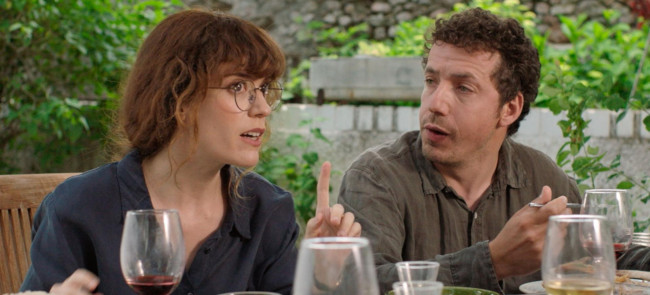 Tracing a breakup with earthy humour and meta storytelling, Spanish filmmaker Jonas Trueba is exploring modern romantic attitudes that sit at odds with the messaging in most movies. The central idea is to celebrate the completion of a relationship rather than the start of one, the opposite of a wedding. And since there are films within the film, the themes cleverly spin in witty circles around the central couple. In bed together one evening, filmmaker Ale (Arana) and actor Alex (Sanz) decide to throw a party to mark the end of their 14-year relationship, taking the idea from Ale's father (Trueba). As they begin inviting friends and family to attend their celebration, everyone expresses confusion about the idea, because Ale and Alex aren't fighting about anything. They're even looking at flats together, so one of them can move out, although they haven't decided who that will be. Meanwhile, Ale is working on the edit of her new movie, which stars both of them. Even as they insist that they're perfectly fine about separating, the film is skilfully shot to both put Ale and Alex at odds within the frame and also show them as loving partners. Friends understand the logic of closing this chapter surrounded by loved ones. But Ale's father and others are quietly convinced that they'll get back together (which is the film's original Spanish title). References to Bergman and Truffaut add wonderful kicks, as does an observation about love as a journey through hope, discovery and repetition to recollection. Engaging and open-handed, Arana and Sanz give superbly relaxed performances while offering tiny glimpses of more complex feelings underneath. Alex is having a harder time with this than Ale is, and their discussions are packed with wonderful ironies. But as the date of the party gets closer, Ale is also struggling with her feelings. And great filmmaker Fernando Trueba (father of Jonas) is wonderful as Ale's thoughtful, philosophical dad. Barriers between this couple are as subtle as the connections. They have a terrific argument about Blake Edwards' comedy 10, regarding its depiction of marriage and objectification of women. And after screening Ale's movie, there's a discussion of whether its plot is linear or circular. Both Ale and Alex take involving internal journeys through the narrative, dealing with their thoughts in their own ways as they speak with the people around them. And inventive touches continually add startling resonance, right to the terrific final act.
| ||||||||||||
|
Young Mothers Jeunes Mères Review by Rich Cline | 
CANNES FILM FEST Is it streaming?
| 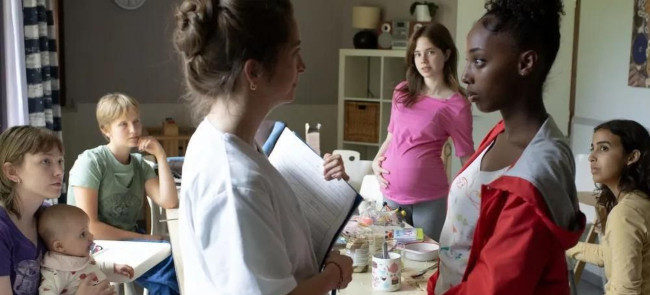 With their influentially earthy, fly-on-the-wall style, Belgian filmmakers Jean-Pierre and Luc Dardenne take the audience on a bracing journey with five teen mothers who are grappling with situations they can barely comprehend. The film skilfully confronts enormous issues in a matter-of-fact way, generating a range of big emotions. And because the young actors are so staggeringly naturalistic in compelling situations, they are unusually easy to identify with. In a young mothers' shelter, Jessica (Verbeek) is about to birth, which spurs her to track down her reluctant birth mother (Hair). Fellow resident Julie (Houben) is making plans with supportive boyfriend Dylan (Jacobs) and their infant daughter, but drugs are still a temptation. Ariane (Fokan) wants what's best for her baby daughter, fending off interference from her problematic mother (Cornil). Perla (Laruelle) is looking forward to building a life with boyfriend Robin (Duret) and their infant son. Then Robin disappears. And Naima (Hilmi) is celebrated when she moves on to a promising new life. Everything feels so authentic that it's impossible to escape the enormous weight of feelings as these startlingly young people make very adult decisions. While Naima's story is encapsulated in a single sequence, the other four strands find nuance as they avoid sentimentality or pushy plotting. Even Julie's struggle with addiction, which includes some expected jolts, is played with a sense of hopefulness. These young women are facing a difficult life ahead, but their resilience makes us root for them. Each cast member delivers an understated performance that captures real-life moments with astute detail. Houben's Julie and Fokan's Ariane have the most complete storylines, with a range of experiences that are genuinely engaging, both happy and heartbreaking. Laruelle brings a powerful intentionality to Perla as she battles against the thought that she is destined to be a single mother. And Verbeek is terrific as an unsettlingly young girl who yearns for a connection with the mother who didn't want her. Because none of this is overplayed, the film pulls us into this world with telling scenes, including the classes these girls take to learn how to bathe and feed their children. Choices they must make have huge repercussions, and we can vividly feel the overwhelming pressure they are under. So even if the film doesn't have a central narrative punch, the Dardennes' naturalistic, multi-strand approach creates an unforgettable portrait that highlights bigger issues while remaining grounded in specific experience.
| 
See also: SHADOWS FILM FESTIVAL © 2025 by Rich Cline, Shadows
on the Wall
HOME | REVIEWS | NEWS | FESTIVAL | AWARDS
| Q&A | ABOUT | TALKBACK | | ||||||||||


